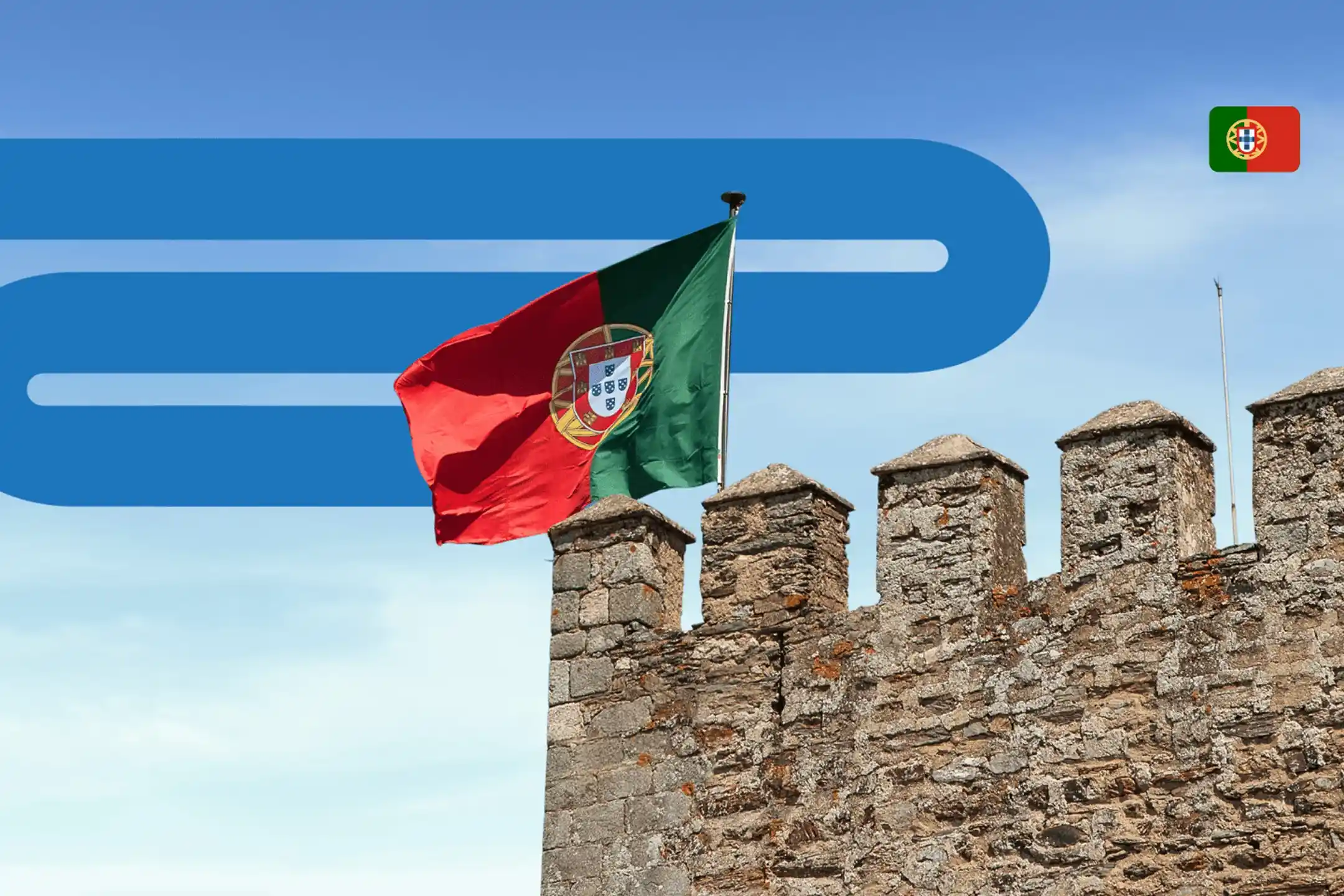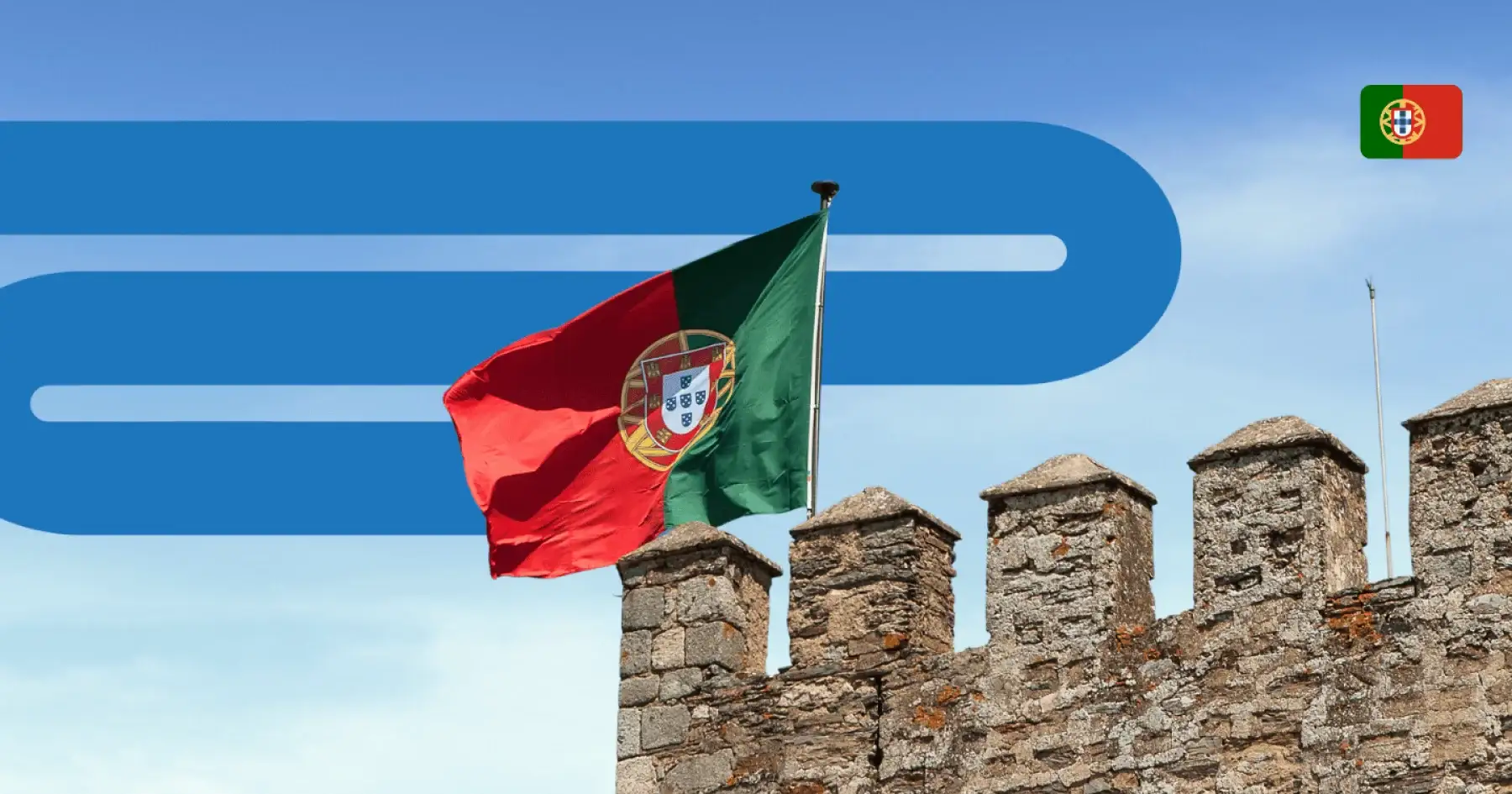For HR and Global Mobility Managers, supporting international teams can often feel overwhelming. Managing remote employee relocation frequently stretches internal expertise and bandwidth. But what if there was a clear, efficient path for your remote talent to thrive in Europe? The D8 Visa, often referred to as the D8 Visa, offers just that, making global mobility simpler for your company and your employees.
This guide will introduce you to the D8 Visa as a powerful tool for attracting and retaining top remote talent without the typical relocation headaches.
What is a D8 Visa in Portugal?
Launched in 2022, the D8 Visa is a specific residence permit designed for non-EU remote workers and freelancers employed by foreign companies. Unlike traditional work visas, this permit doesn't require a Portuguese employer, making it ideal for location-independent professionals on your team.
The D8 Visa comes in two main forms:
- Temporary Stay Visa: Valid for 1 year (non-renewable).
- Residency Visa: Leads to a 2-year residence permit, renewable for up to 5+ years, offering a pathway to permanent residency and Portuguese citizenship.
Over 2,600 digital nomads have already chosen Portugal through this program, drawn by its welcoming environment and access to the Schengen Area.
D8 Visa Requirements for Main Applicant
To qualify for the D8 Visa, your employees will need to meet a few important criteria. Understanding these requirements is crucial for a smooth application:
- Remote Work Proof: They need employment contracts or client agreements showing consistent remote work for non-Portuguese entities.
- Income Threshold: A minimum monthly income of €3,480 (about four times Portugal's minimum wage) is required for the last 3–6 months. For family inclusion, additional income is needed: 50% more for a spouse and 30% per child or dependent parent. This financial requirement is a core element of the (D8) Visa.
- Financial Stability: Recommended savings of at least €10,416.
- Clean Background: Police clearance certificates from countries lived in for over a year are necessary.
- Health Insurance: Coverage of at least €30,000 valid in Portugal is required.
These criteria constitute the primary D8 Visa requirements that applicants need to satisfy. These are designed to ensure applicants can support themselves while living in Portugal. For up-to-date information on the D8 Visa, it's always best to check official sources.
Process for Main Applicant
The application involves several steps, from initial application to securing a residence permit in Portugal. Here’s a general overview of how to apply for Portugal Digital Nomad (D8) Visa:
Required Documentation
To ensure a smooth application for the D8 Visa, companies and candidates need to prepare a complete set of documents.
- Valid passport (valid for at least six months beyond the intended stay).
- Completed D8 Visa application form.
- Two recent passport-sized photos.
- Proof of remote work: Employment contract, freelance agreements, or client contracts for non-Portuguese entities.
- Proof of income: Bank statements for three months showing the required monthly income.
- Savings proof: Bank statement showing the required savings amount.
- Health insurance: International policy with €30,000 coverage.
- Clean criminal record certificate, apostilled and translated into Portuguese.
- Proof of accommodation: Rental agreement, property deed, or host invitation letter.
- Motivation letter explaining the move to Portugal.
- Signed declaration of compliance with Portuguese immigration laws.
All non-Portuguese documents must be apostilled and translated by a certified translator.
Salary Levels and Financial Requirements & Language Requirements
The D8 Visa requires a stable monthly income to ensure employees can support themselves (and families) without relying on Portuguese resources:
- Single Applicant: €3,480/month + €10,416 in savings.
- With Spouse: €5,220/month (€3,480 + 50%) + €15,624 in savings.
- Per Child/Dependent Parent: Add €3,132/month (€3,480 + 30%) + €2,604 in savings per dependent.
Income must come from remote work for non-Portuguese entities, verified through bank statements or financial documents for three months. Savings must be transferred to a Portuguese bank account for the residence permit application.
To qualify for permanent residency or citizenship, employees must demonstrate A2-level Portuguese proficiency, equivalent to basic conversational skills. The CIPLE exam tests listening, reading, writing, and speaking. Exemptions apply for citizens of Portuguese-speaking countries.
Bringing Your Family with You
The D8 Visa allows for family reunification, enabling spouses, children, and dependent parents to join the primary applicant.
Key Eligibility for Family
To include family members on this Portuguese visa, the primary applicant must meet the visa’s core eligibility criteria and provide additional proof of financial capacity to support dependents. Eligible family members include:
- Spouse or Partner: Legally married spouses or partners in a stable, documented union.
- Minor Children: Children under 18, including adopted children.
- Dependent Adult Children: Adult children (over 18) who are unmarried, enrolled in full-time education, and financially dependent.
- Dependent Parents: Parents of the applicant or spouse who are over 65 or economically dependent.
Application Process for Family
Family members can apply for reunification simultaneously with the primary applicant’s visa application or after the primary applicant’s visa is approved.
- Gather Documents: Collect all required documents for the primary applicant and family members. Non-EU documents must be apostilled and translated into Portuguese.
- Submit Application: Apply at the Portuguese Consulate or Embassy in your country of residence or citizenship, or via VFS Global where applicable.
- Visa Approval: The consulate reviews the application, requesting an opinion from Portugal’s AIMA. Processing typically takes 60–90 days.
- Enter Portugal: Once approved, the visa is stamped in the passport.
- Residence Permit: Schedule an AIMA appointment to convert the visa into a residence permit. Family members must also attend AIMA appointments for their permits.
Required Documentation for Family
Documentation for family inclusion builds on the primary applicant’s requirements, with additional proof of family ties and financial support. All documents must be apostilled and translated into Portuguese.
- Valid passport for each family member.
- Proof of family relationship: Marriage certificate for spouses, birth certificates for children, or birth certificates proving dependency for parents.
- Proof of dependency: For adult children, proof of full-time student status; for parents, proof of economic dependency.
- Health insurance for each family member (€30,000 coverage).
- Clean criminal record certificate for adult family members.
- Additional financial proof: Bank statements showing 50% more income for a spouse and 30% per child or parent.
- Cover letter for dependents, referencing the primary applicant’s documentation.
A Few Final Things to Know
D8 Visa Processing Time and Fees
The processing time for the initial visa application typically ranges from 60 to 90 days from submission. Processing for the residence permit once in Portugal takes another 60–90 days after the AIMA appointment.
Fees:
- Visa Application Fee: €75–€90 per person, depending on the visa type (temporary stay or residency).
- Residence Permit Fee: Approximately €180 per person for the initial permit and €72 for document issuance.
- Additional Costs: Apostille fees, document translation, health insurance (starting at €14/month), and Portuguese tax number (NIF) acquisition.
Additional Considerations for HR
Navigating international moves involves more than just the initial permit. Here’s what HR teams should keep in mind for employees on this digital nomad visa:
- Tax Residency: Employees become tax residents after 183 days/year in Portugal. Consulting a tax advisor is important for understanding global income reporting and potential Non-Habitual Resident (NHR) tax benefits.
- Language & Integration: While English is common in cities, basic Portuguese skills can significantly help with daily life and integration.
- Healthcare: D8 Visa holders initially use private health insurance, but gain access to Portugal's public healthcare system (SNS) after obtaining residency.
- Schooling Options: Portugal offers public, international, and private Portuguese schools for children. International schools are popular but can have competitive enrollment.
- Spousal Employment: Spouses included via family reunification can generally only work remotely for non-Portuguese entities. If they wish to work locally, they may need to explore separate permit types.
Why This Portuguese Visa is a Strategic Choice for HR Teams
For companies, this digital nomad visa is more than just a document; it's a tool for effective talent attraction and retention. It helps address common challenges HR teams face when managing international talent:
- Attract Top Talent: Portugal’s appeal (quality of life, culture, safety) makes it an attractive destination for remote professionals, giving your company an edge in recruiting.
- Efficient Entry: This D8 Visa offers streamlined application handling compared to many traditional routes.
- Family Inclusion: The D8 Visa pathway allows immediate family members (spouses, children, dependent parents) to join the primary applicant, promoting employee well-being and reducing relocation stress.
- Long-Term Stability & Retention: The residency aspect of the permit can lead to Portuguese citizenship after 5 years of legal residency, offering your employees (and their families) EU residency and work rights. This long-term outlook can significantly boost employee loyalty and retention.
Why Choose Portugal & What to Know Before You Apply
The D8 Visa offers more than just a place to live; it's a gateway to a new lifestyle for your employees. Reasons to choose Portugal include its access to the Schengen Area, potential tax advantages like the NHR regime for 10 years, and a direct path to citizenship after 5 years of legal residency. It's also home to vibrant digital nomad hotspots like Lisbon's coworking spaces and Madeira's famous Digital Nomad Village.
Before applying for this digital nomad visa, employees should be aware that they become tax residents after 183 days/year in Portugal. While English is widely spoken in urban areas, learning basic Portuguese helps with daily life. Public healthcare access comes with residency, but private insurance is recommended for faster service.
Streamlining Global Mobility with Expert Support
Managing the nuances of obtaining the D8 Visa for international employees can be challenging. That's where expert assistance becomes invaluable.
Jobbatical’s team supports companies with their global talent mobility needs for permits like the D8 Visa. We offer comprehensive guidance to ensure a smooth journey for your workforce. Our team assists by:
- Assessing eligibility for the D8 Visa and other relevant authorizations.
- Managing document preparation, translations, and communications with authorities.
- Guiding employees through every step of the process, from application to local registrations.
- Supporting family members with their applications and subsequent steps.
Conclusion
For HR teams looking to efficiently expand their global talent pool, the D8 Visa offers a compelling solution. This permit provides a clear, beneficial pathway for remote employees, addressing many of the challenges associated with international relocation. By partnering with Jobbatical, you can navigate the requirements with confidence, ensuring a compliant and seamless experience for your valuable talent. If you're considering what the D8 Visa means for your company, this visa presents a strong option for global talent.
Frequently Asked Questions (FAQ)
The D8 Visa Portugal is a residence permit for non-EU remote workers, allowing them to live and work remotely in Portugal. It's relevant for your company as it provides an efficient legal pathway for your remote employees, aiding in talent attraction and retention.
Employees generally need proof of remote work for non-Portuguese entities, a minimum monthly income of €3,480, recommended savings of at least €10,416, a clean criminal record, and valid health insurance. These are the core D8 Visa requirements 2025.
The D8 Visa processing time for the initial visa application typically ranges from 60 to 90 days.
Yes, the D8 Visa allows immediate family members (spouses, children, and dependent parents) to join the primary applicant, promoting family well-being during the relocation.
The D8 Visa Portugal is specifically designed for digital nomads and remote workers who are employed by non-Portuguese companies or are freelancers working with international clients. This allows them to reside and work remotely from Portugal legally.


.svg)












.svg)
